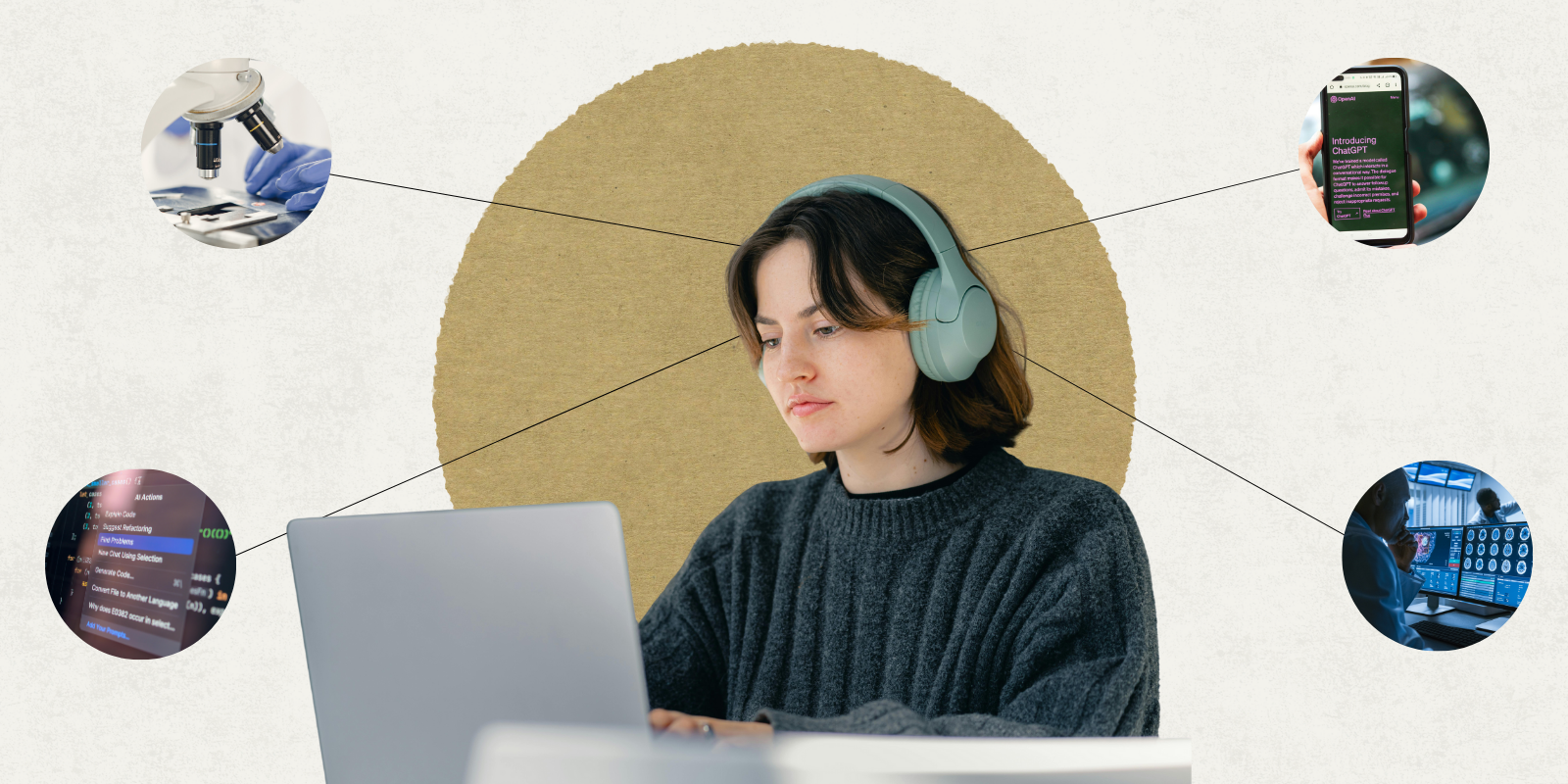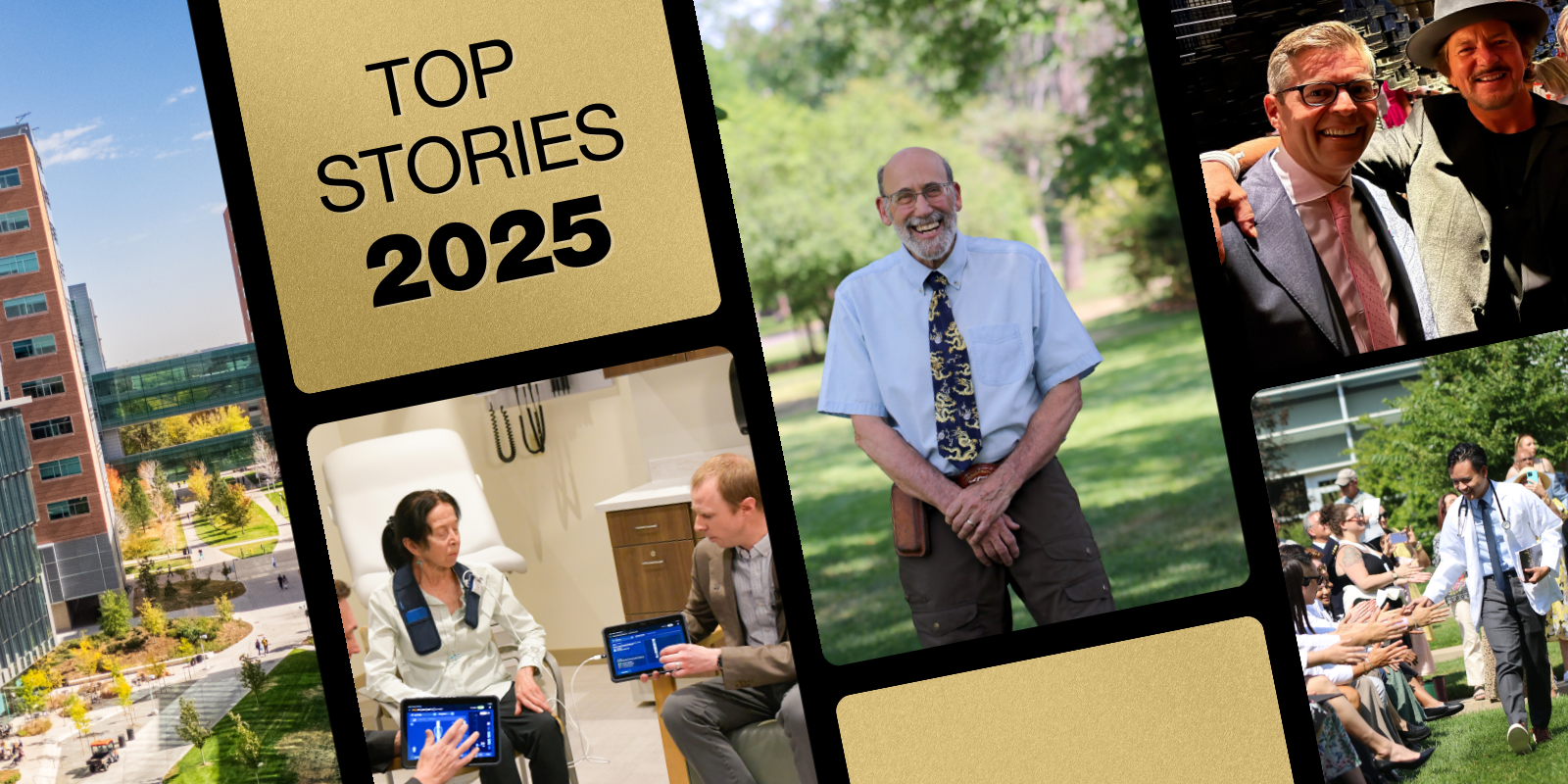Forty-eight Syrians who’ve lost limbs due to the ongoing civil war now have prosthetic devices because of Haya Kaliounji, who graduates from the University of Colorado School of Medicine in May.
Her nonprofit Rise Again started as a Girl Scout Gold Award project in 2015 when she was finishing high school in Southern California. Since then, she’s raised $56,000 for the prosthetics.
“I told myself that if the project worked out, I would turn it into a nonprofit,” she says. “The technician I was working with was sending me updates. When I saw the first child get his prosthetic device, it was just so rewarding and touching to see someone get back their physical ability and become independent again.”
At that point, it wasn’t clear to Kaliounji that she’d found a direct pathway into medicine. Her goal was to help people in the country she and her family left because of escalating violence.
“That work did make me think, ‘oh maybe health care is it,’ and I started volunteering at the hospital, did an internship, and it sucked me in,” she says.

To raise money for her nonprofit Rise Again, Haya Kaliounji often offers henna at local festivals. Photos courtesy of Haya Kaliounji.
This summer, Kaliounji will continue her training as a resident at the CU School of Medicine with a residency in internal medicine.
She plans to keep Rise Again going, just as she did through medical school, and help it continue to evolve. In 2020, the challenge of the pandemic, sanctions, and more aid on the ground meant there wasn’t as much of a need for prosthetic devices, so she turned her attention to covering medication costs for Syrians with diabetes, hypertension, acute infections, and other conditions.
So far, her nonprofit has helped 800 people.
Life and leaving Aleppo
Growing up in Aleppo, Syria was lovely, Kaliounji says. “It was a big city, but it felt very cozy and homey. The first word I think of is ‘community.’”
She attended a small private French school where everybody knew everybody. Kaliounji remembers painting classes, Girl Scouts, and playing tennis.
“In the summers, we would go to the pool every day and all of our friends would be there,” she recalls.
However, by the time she was 13, the country had erupted in violence.
Rising political tensions closed the school just as Kaliounji was about to enter 10th grade. There was more violence, more explosions, she says.
Her older siblings were attending college in Lebanon, so she and her mother followed.
“There, we got three-month visas to come to the U.S. and we thought we could either take it and interrupt the school year or let it expire and risk not getting another one,” she says. “But the situation in Lebanon was not much better than Syria. It’s also unstable and not very safe. So, we took the risk, we came, and we have been here ever since.”
They eventually landed in Los Angeles, where Kaliounji’s father helped them settle while traveling back and forth to Syria, where many family members remain.
Growing into global health
After high school, Kaliounji enrolled at a local community college. The small class sizes at Pasadena City College (PCC) provided the right environment to grow and flourish, she says.
After two years at PCC, she transferred to the University of California, Los Angeles where she completed a bachelor’s degree in physiological sciences. Following her undergraduate journey in California, she moved to Colorado to begin her career in medicine here at CU School of Medicine.

Haya Kaliounji, who matched into a residency program at the University of Colorado, poses for a photo with her family.
“I think if you ask any student from the class of 2024, they’ll tell you the beginning was rough. We didn’t have the best social environment because of COVID-19,” she says. “But looking back at my entire time here, I’m so happy with the education and the culture. I don’t think I would change anything, except for starting in a pandemic.”
Kaliounji likes the idea of a future in hospital medicine, but she can also see herself in a specialty, like endocrinology or cardiology. The CU internal medicine residency appealed to her because of the Global Health Pathway.
“Once I get through a few months of residency, I’ll see how things feel and go from there,” she says. “But whatever I do, I know I’ll want to make global health a piece of my practice.”



